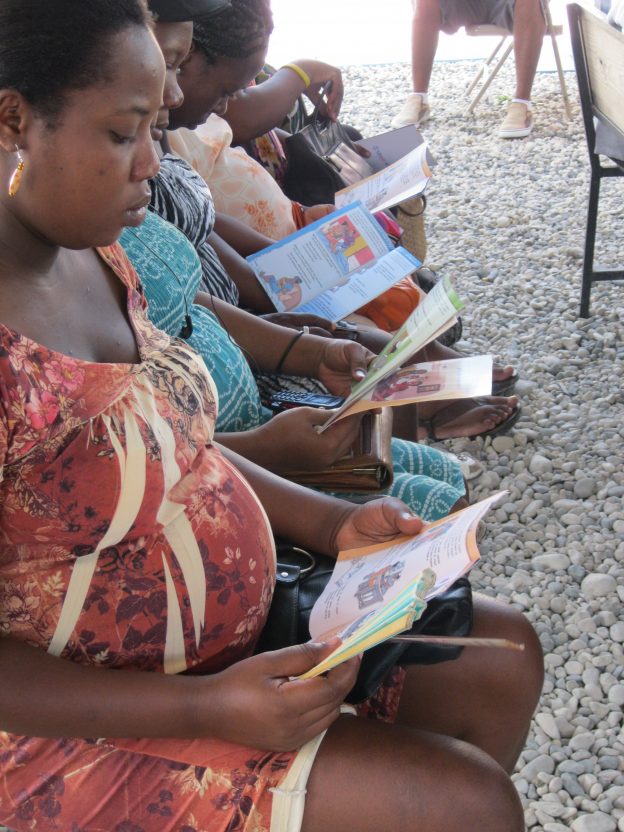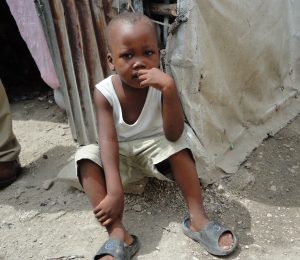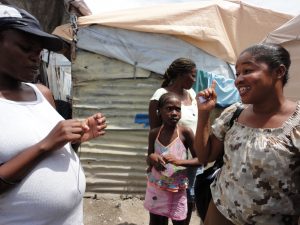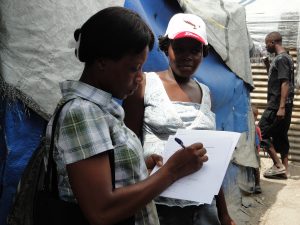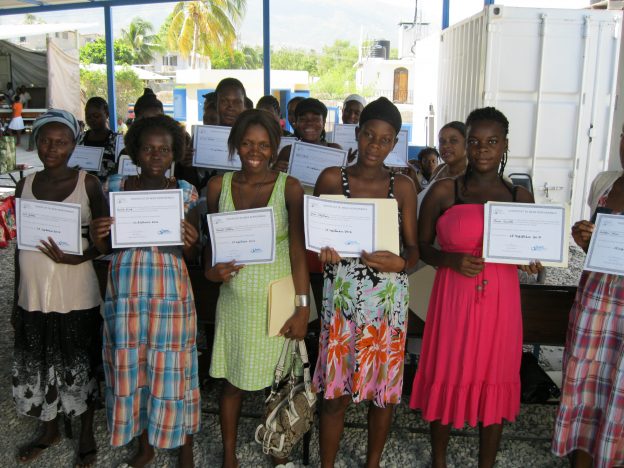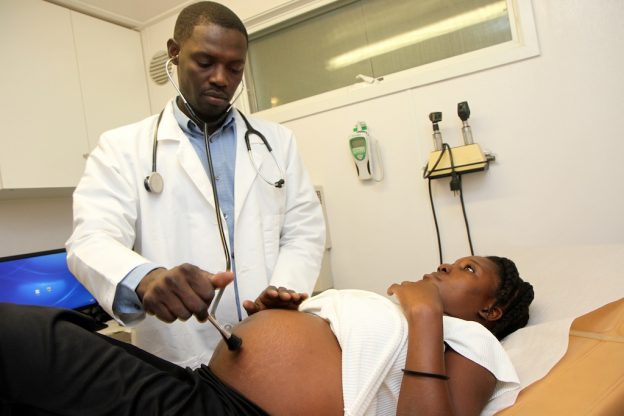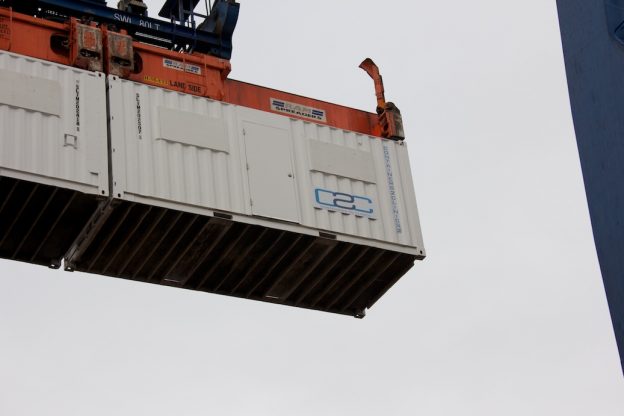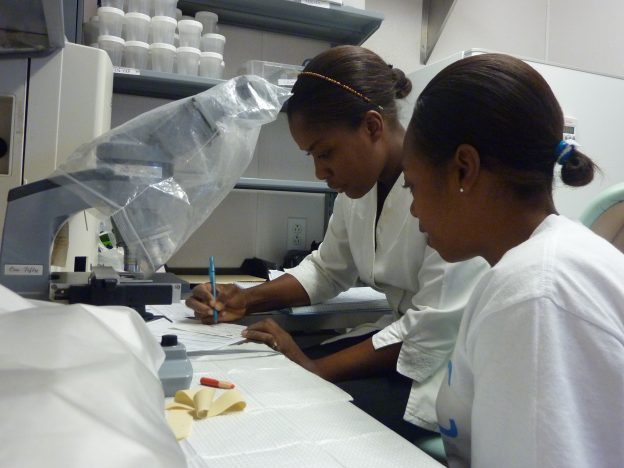On my recent trip to Port-au-Prince, I had the honor of collecting the narratives of 11 brave Haitian pregnant women and girls who were willing to tell me their personal stories. I asked them about their childhoods, their current living situations, what they did for food and water each day, how they became pregnant and their feelings about their pregnancies. These women opened up to me with astonishing courage given the daily struggle they face to keep themselves healthy, sheltered and safe.
Of the 11 women I interviewed, not one of them had planned their pregnancy. For hours, I sat across from girls, age 19 to 23, most of whom were students who had since dropped out of school due to their pregnancies, and watched them choke back tears of disappointment and fear. They won’t be going back to school. And without a trade, these girls will be forever caught in a cycle of poverty that continues to plague much of Haiti and the developing world. Nike calls it “The Girl Effect” and it was devastating to see their future independence and well-being shattered by an unwanted pregnancy and accompanying cost burden.
Two of the girls I spoke with still haunt me. “Marie” is 22 years old, 5 months pregnant, and comes to Port-au-Prince from the border area with the Dominican Republic to receive antenatal care at our clinic at Grace Children’s Hospital. Why does she come to Grace from Terre Roche which is over 3 hours, a motorcycle and tap-tap ride, away? Because Marie is HIV-positive and, due to the enormous social stigma HIV still carries in Haiti, she gets up at 5am on her appointment days to arrive at the clinic by 8am only to wait 2-3 hours to see the doctor and then turn around and return home. It takes her all day. She was in school, but now, due to her pregnancy, she relies completely on her “boyfriend,” a motorcycle taxi driver. Marie was given by her father at the age of nine as a gift to a man in Terre Roche and has worked, unpaid, for him ever since.
“Annette” is a 19-year old orphan whose parents died when she was young, most likely from tuberculosis. She is still living under a makeshift tent with a friend in Port-au-Prince, two and a half years after the 2010 earthquake. She is HIV-positive and refuses to tell anyone of her condition, even her two sisters who live in the Dominican Republic. Annette was raped by her boyfriend who, when she became pregnant, tried to force her to take an abortion pill. Annette refused and her boyfriend abandoned her. She is unable to stay in school due to her pregnancy and has no idea how she is going to support a child. She walks to the clinic for her appointments, an hour each way in the 95-degree Haitian sun at 8 months pregnant. She currently begs on the street for money to buy food and water. She is unable to stay on her anti-retroviral therapy as she does not always have food available to avoid the extreme nausea that comes with taking ARTs on an empty stomach. She is completely terrified and wept openly for the majority of our discussion. Yet she insisted on continuing the interview.
How can one not be humbled in the presence of such suffering and courage? What future do the young girls of Haiti have without information about safe sex, access to contraception and the empowerment to use it? When will there be a national public health education campaign about HIV to reduce the acute social stigma of the disease so that women like Marie and Annette are not forced into silent dungeons of isolation for fear of family and community members ostracizing them? Their circumstances are dire and the pubic systems that are supposed to support them are broken. But we cannot, nor shall we, turn our backs on these girls. Their determination to survive and to support their young children despite their bleak outlook requires our unconditional commitment to change their future and, that of their daughters, for the better.
*Photo courtesy of Nadia Todres
